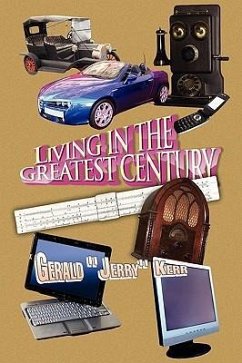Gerald "Jerry" Kerr was born in 1920 in Kansas, the Heartland of the United States. In his early years, there were no modern appliances, and everything was done by manual labor. He describes how movies went from black and white, silent films to sound and color. In 1929 the Stock Market crashed and he lived through the Great Depression and terrible dust storms in the Mid-west. Hitler started WWII in 1939 and Japan attacked the U.S. Navy in Pearl Harbor on Dec. 7, 1941. The author was drafted into the Army, went to OCS and became a 2nd Lieutenant. He married and was sent to New Guinea and at the end of the war, took in some of the first troops to occupy Japan. He saw his eighteen months old son for the first time when he returned home. Kerr was in the army for twenty-two years and retired in 1964. During his Army Career, he had three tours of duty in the Pentagon, a tour in Rio de Janeiro, Brazil, Bangkok, Thailand, and received an MBA from Syracuse University. His wife contracted Alzheimer's and passed away in the 80's and he later married a Texas lady. He lived four score of the 20th Century, and experienced the fantastic advances made in transportation, communications, electronics and medicine. Computers put men on the moon and more progress was made in that one century than in all of the time before. This made it "Living in the Greatest Century".
Hinweis: Dieser Artikel kann nur an eine deutsche Lieferadresse ausgeliefert werden.
Hinweis: Dieser Artikel kann nur an eine deutsche Lieferadresse ausgeliefert werden.








